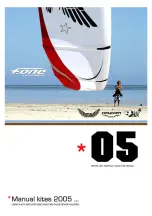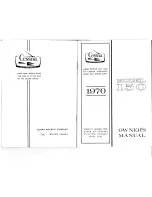
8-22
P/N 13772-005
Section 8
Cirrus Design
Handling and Servicing
SR22T
To refuel airplane:
1. Place fire extinguisher near fuel tank being filled.
2. Connect ground wire from refuel nozzle to airplane exhaust, from
airplane exhaust to fuel truck or cart, and from fuel truck or cart to
a suitable earth ground.
3. Place rubber protective cover over wing around fuel filler.
• Note •
Do not permit fuel nozzle to come in contact with bottom of
fuel tanks. Keep fuel tanks at least half full at all times to
minimize condensation and moisture accumulation in tanks. In
extremely humid areas, the fuel supply should be checked
frequently and drained of condensation to prevent possible
distribution problems.
4. Remove fuel filler cap and fuel airplane to desired level.
• Note •
If fuel is going to be added to only one tank, the tank being
serviced should be filled to the same level as the opposite
tank. This will aid in keeping fuel loads balanced.
5. Remove nozzle, install filler cap, and remove protective cover.
6. Repeat refuel procedure for opposite wing.
7. Remove ground wires.
8. Remove fire extinguisher.
Fuel Contamination and Sampling
Typically, fuel contamination results from foreign material such as
water, dirt, rust, and fungal or bacterial growth. Additionally, chemicals
and additives that are incompatible with fuel or fuel system
components are also a source of fuel contamination. To assure that
the proper grade of fuel is used and that contamination is not present,
the fuel must be sampled prior to each flight.
Each fuel system drain must be sampled by draining a cupful of fuel
into a clear sample cup. Fuel drains are provided for the fuel
gascolator, wing tanks, and collector tank drains. The gascolator drain
exits the lower engine cowl just forward of the firewall near the airplane
centerline. Fuel tank and collector tank drains are located at the low
spot in the respective tank.
Original Issue












































